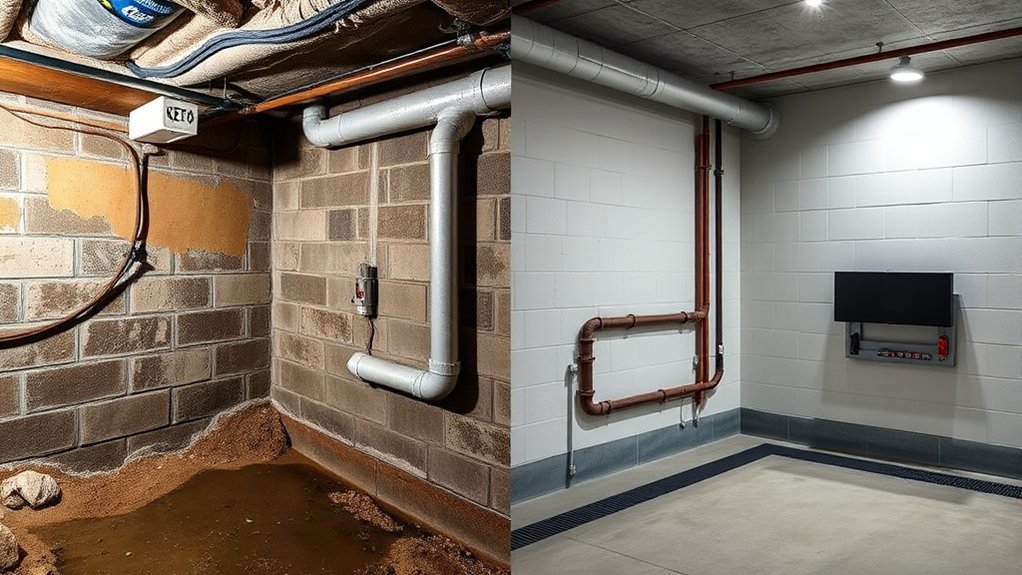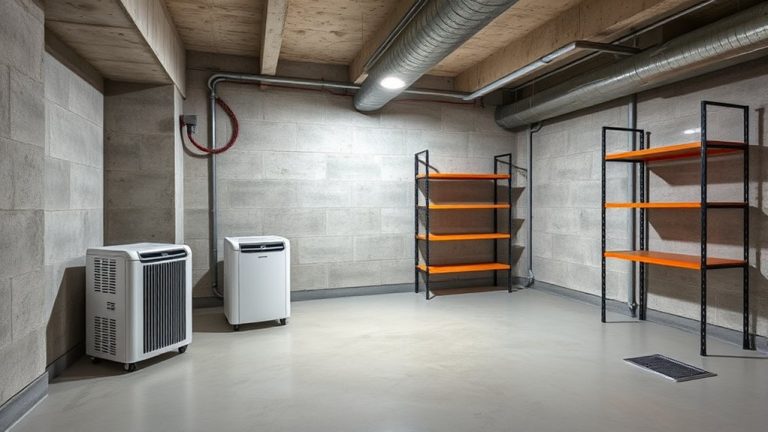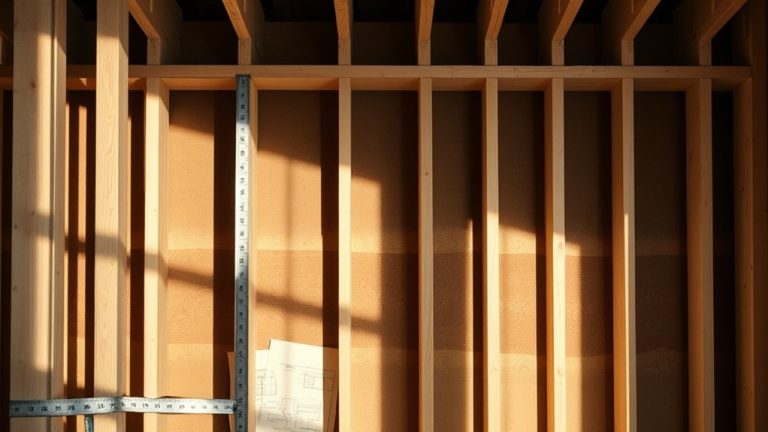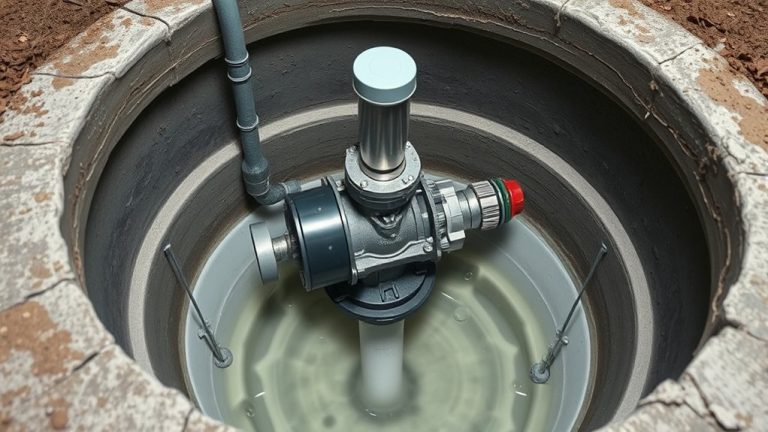Water in your basement isn't just an inconvenience—it's a potential nightmare for homeowners. You're probably wondering whether to tackle waterproofing yourself or call in the professionals. Each approach carries unique risks and rewards that could impact your home's structural integrity and your wallet. Understanding the right strategy requires careful consideration of your specific moisture challenges, budget constraints, and long-term protection goals. Want to reveal the most effective solution for your home?
Key Takeaways
- Assess the extent of water damage, considering DIY solutions are best for minor issues, while professionals are crucial for extensive or structural problems.
- Evaluate your technical skills, budget, and available time, recognizing that professional services offer expertise and long-term warranties despite higher upfront costs.
- Identify potential water entry points like foundation cracks, understanding that comprehensive diagnosis requires specialized equipment and professional technical knowledge.
- Compare the cost-effectiveness of interventions, noting that DIY materials range from $100-$500, while professional services ($2,000-$6,000) can prevent future costly structural repairs.
- Prioritize home value and health protection by choosing interventions that comprehensively address moisture challenges and prevent potential mold growth and structural deterioration.
Understanding Your Basement's Water Challenges
When water starts seeping into your basement, it can quickly become a homeowner's worst nightmare. Understanding your basement's unique water challenges is pivotal for effective waterproofing. Foundation cracks can be a critical indicator of potential water infiltration pathways that require immediate attention.
You'll want to start by identifying moisture sources through careful inspection. Look for cracks, check foundation walls, and monitor water flow during different weather conditions. Watch for signs like damp spots, mold growth, or musty odors that indicate potential water infiltration.
Evaluating DIY Waterproofing Techniques
Armed with your newfound understanding of basement water challenges, you might be tempted to tackle waterproofing as a do-it-yourself project. Evaluating moisture sources and assessing material options can seem straightforward, but it's pivotal to approach the task strategically. Concrete sealing methods can provide an additional layer of protection against water intrusion.
- Applying waterproof sealants to concrete walls
- Installing interior drainage systems
- Improving exterior ground slope
- Sealing potential crack entry points
While these methods can help, they're not infallible. Your success depends on precisely diagnosing the root cause of moisture and choosing appropriate solutions that match your specific basement conditions.
Advantages of Professional Waterproofing Services
Because basement water damage can quickly escalate from a minor inconvenience to a major structural problem, professional waterproofing services offer homeowners thorough, meticulous, in-depth solutions that DIY methods often can't match.
You'll benefit from expert recommendations tailored to your specific basement conditions. Professionals bring specialized equipment, technical knowledge, and guaranteed workmanship that guarantee extensive protection.
They'll diagnose underlying issues, recommend targeted interventions, and execute precise waterproofing strategies. While DIY approaches might seem cost-effective initially, professional services provide long-term reliability and peace of mind, potentially saving you thousands in future repair costs.
Cost Comparison: DIY vs. Professional Solutions
Evaluating the financial implications of basement waterproofing reveals significant differences between do-it-yourself and professional approaches. While DIY methods might seem budget friendly options, they often carry hidden risks and potential long-term expenses.
A detailed cost benefit analysis shows:
- DIY materials typically range from $100-$500
- Professional services cost $2,000-$6,000
- DIY risks include potential structural damage
- Professional solutions offer full-scale warranties
Your choice depends on your skill level, budget, and the extent of water damage. Professional services might seem expensive upfront, but they can save you money by preventing costly future repairs and ensuring thorough waterproofing.
When to Choose Professional Intervention
If water damage in your basement seems extensive or complex, it's time to call in the professionals. When budget constraints or time availability make DIY solutions challenging, expert waterproofers can save you money in the long run.
They'll diagnose underlying issues that you might miss, preventing costly future repairs. Professionals bring specialized equipment and exhaustive knowledge about drainage systems, foundation integrity, and moisture control.
They can quickly identify potential structural risks and implement targeted solutions that protect your home's value and your family's health.
Essential Considerations for Long-Term Protection
Every successful basement waterproofing strategy demands thorough planning and proactive maintenance to safeguard your home's foundation and structural integrity.
When protecting your basement, consider these essential factors:
- Regular moisture control inspections
- Early detection of potential water intrusion points
- Extensive drainage system evaluation
- Strategic waterproofing material selection
You'll want to invest time and resources wisely, understanding that prevention is cheaper than extensive repairs. By addressing potential vulnerabilities early, you'll maintain your home's structural integrity and avoid costly water damage.
Your proactive approach can save thousands in potential restoration expenses and preserve your property's long-term value.
Frequently Asked Questions
Can Waterproofing Damaged Walls Be Done Without Professional Help?
You'll want to carefully assess wall conditions and determine DIY feasibility. Minor damages might be manageable, but extensive water intrusion or structural issues demand professional knowledge to prevent costly long-term problems.
How Long Does a Typical Basement Waterproofing Solution Last?
You'll find most waterproofing solutions last 10-15 years, depending on material longevity and your ongoing maintenance requirements. Regular inspections and proactive repairs can greatly extend the system's effectiveness.
Will Waterproofing Increase My Home's Overall Property Value?
You'll see increased home value with waterproofing, as it prevents moisture damage and signals property appreciation to potential buyers, making your basement a prized/cherished/coveted asset in the real estate market.
Are There Any Health Risks Associated With Basement Moisture?
You'll face serious health hazards from basement moisture, including mold exposure risks that can trigger respiratory issues. Act now to protect your family's well-being and breathe easier in your home.
Can I Partially Waterproof My Basement Instead of Fully Treating?
You can tackle partial basement coverage to manage waterproofing budget constraints, but be aware that incomplete solutions might leave vulnerable areas exposed to potential moisture damage.



